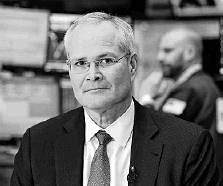Activists protest Exxon, Chevron
Investors prod energy giants on climate actions
By Jordan Blum STAFF WRITER
Exxon Mobil and Chevron faced protests from environmental activists and some of their own investors at their annual meetings Wednesday, but shareholders shot down proposals pushing for greater climate change transparency and accountability.
The United States’ two largest energy companies have received mounting criticism for lagging behind European peers Royal Dutch Shell, BP and Total for not standing as firm on resolutions regarding fossil fuels’ contributions to climate change. Shell went a step further and recently linked executive pay to carbon emission reduction goals.
BP, which also faced protesters, agreed this month to a proposal to disclose how its business plans align with the 2015 Paris climate accord. On the other hand, the U.S. Securities and Exchange Commission last month said Irving-based Exxon Mobil could block a similar proposal from even appearing on the ballot.
Still, Exxon Mobil Chairman and Chief Executive Darren Woods was given some reason to worry. A resolution seeking to create an independent chairperson failed, but received 41 percent of the vote. A similar proposal half a country away at California-based Chevron garnered 26 percent.
“I would say this is a shot across the bow, especially for Exxon,” said Sandeep Dahiya, a business professor at Georgetown University. “You’re beginning to see more of the bigger institutional investors behind some of these proposals.”
Defying management
Shareholders defied Exxon management two years ago and approved a resolution for Exxon to report its climate-related business risks.
The European oil majors migt not be doing enough, but they feel much more pressure to align themselves with the Paris agreement goal of keeping a global temperature rise below 2 degrees Celsius by 2100, said Rob Schuwerk, North American director for the Carbon Tracker Initiative.
“In the U.S., we don’t see that yet,” Schuwerk said. “We see a lot of resistance to taking responsibility for the emissions from their products.”
Exxon and Chevron both announced new emissions reduction plans in recent months, but Exxon Mobil shareholders Wednesday rejected climate-related resolutions, with none receiving more than 30 percent support. One resolution, asking to create a climate change committee, didn’t garner 10 percent of the votes.
While Woods reiterated Exxon’s support for a carbon tax to help incentivize emissions reductions, he argued that global energy demand will keep growing and the world will need more fossil fuels for electricity, transportation and much more. Exxon is working to produce the oil, gas and fuel much more cleanly, he said.
“We’re doing our part to fulfill society’s dual challenge,” Woods said, referencing the demand for more, but cleaner energy.
Edward Mason, head of responsible investment at the Church Commissioners for England, was sharply critical of Exxon at the meeting, arguing its progress has been “painfully slow,” lagging woefully behind its European rivals on climate change.
Natasha Lamb, a managing partner at Arjuna Capital, challenged Exxon’s assessment that more, not less, oil and gas will be needed in the future.
“Climate change poses an emergency threat to the human race, the global economy and the future of our company,” Lamb said.
Coming to grips
Responding to the criticism, Woods highlighted Exxon’s emission-reduction progress, its work on algae-based biofuels and its efforts to develop more carbon-capture technologies.
Exxon, headquartered in Irving, has received scrutiny in recent years, including facing accusations — which the company has denied — that it knew about the climate repercussions of its business in the 1980s but hid the evidence.
Within the past couple of years, Exxon Mobil and Chevron have taken steadily stronger stances acknowledging the risks of climate change and have implemented steps to reduce greenhouse gas emissions and pollution from their operations.
Exxon pledged a broader effort to reduce its methane emissions by 15 percent worldwide by 2020.
It also withdrew last year from the American Legislative Exchange Council, known as ALEC, which has pushed a conservative agenda within state governments for more than 45 years, including fighting many environmental regulations. Chevron opted to remain a member of ALEC.
Exxon, Chevron and others last year said they formed a new methane emissions consortium focused on reducing the release of greenhouse gas, called the Col-laboratory to Advance Methane Science, nicknamed CAMS.
And Exxon Mobil said this month it would invest about $100 million over 10 years in emissions-reduction technologies at some of the nation’s top energy research labs. jordan.blum@chron.com twitter.com/jdblum23
